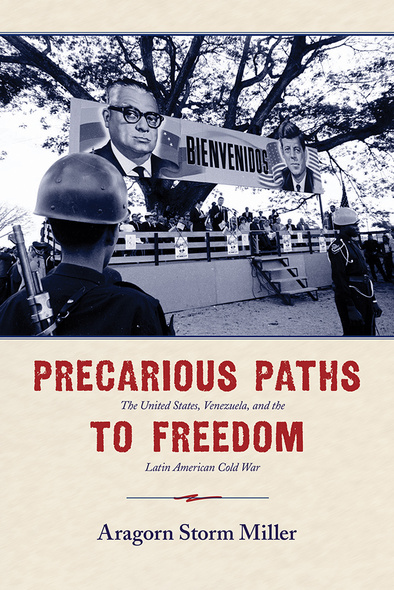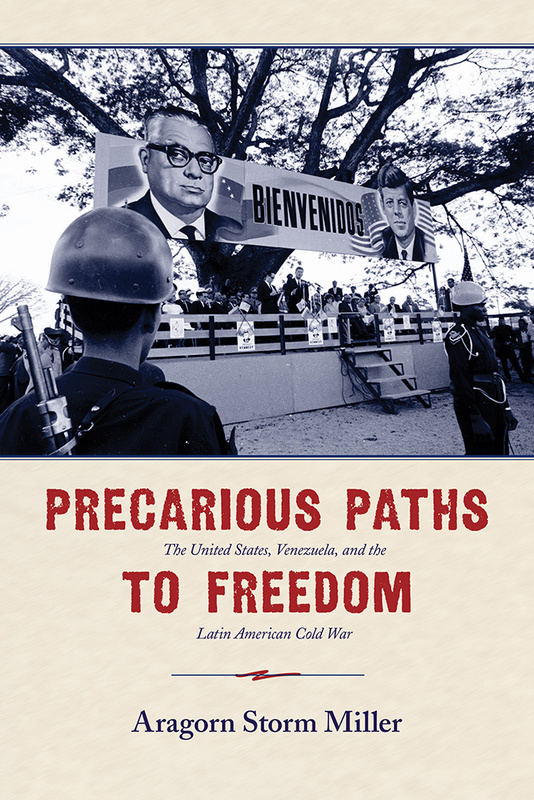Precarious Paths to Freedom
The United States, Venezuela, and the Latin American Cold War
Miller analyzes US-Venezuelan relations during the 1950s and 1960s as a case study for the broader political dynamics of the hemisphere and beyond during the critical period of the global Cold War. He addresses the perception that US foreign policy toward Latin America was an overwhelming failure in which initiatives intended to promote democracy and modernization, and to insulate the hemisphere from the ideological struggles of the global Cold War, reaped only authoritarian regimes, uneven and sluggish economic growth, and abstract debates over capitalism and communism that distracted attention from Latin America's pressing socioeconomic problems. Precarious Paths to Freedom demonstrates that Washington rather achieved success by cultivating a partnership with a democratizing Venezuela. From 1958 onward US policymakers identified Venezuela as the crucial bulwark against political extremism and as the ideal partner in the creation of a modernized, prosperous, and pro-US Latin America.
Miller gives a clear and cogent account of the development of the bilateral relationship.'--Latin American Research Review
Aragorn Storm Miller is a lecturer at the University of Texas at Austin.






